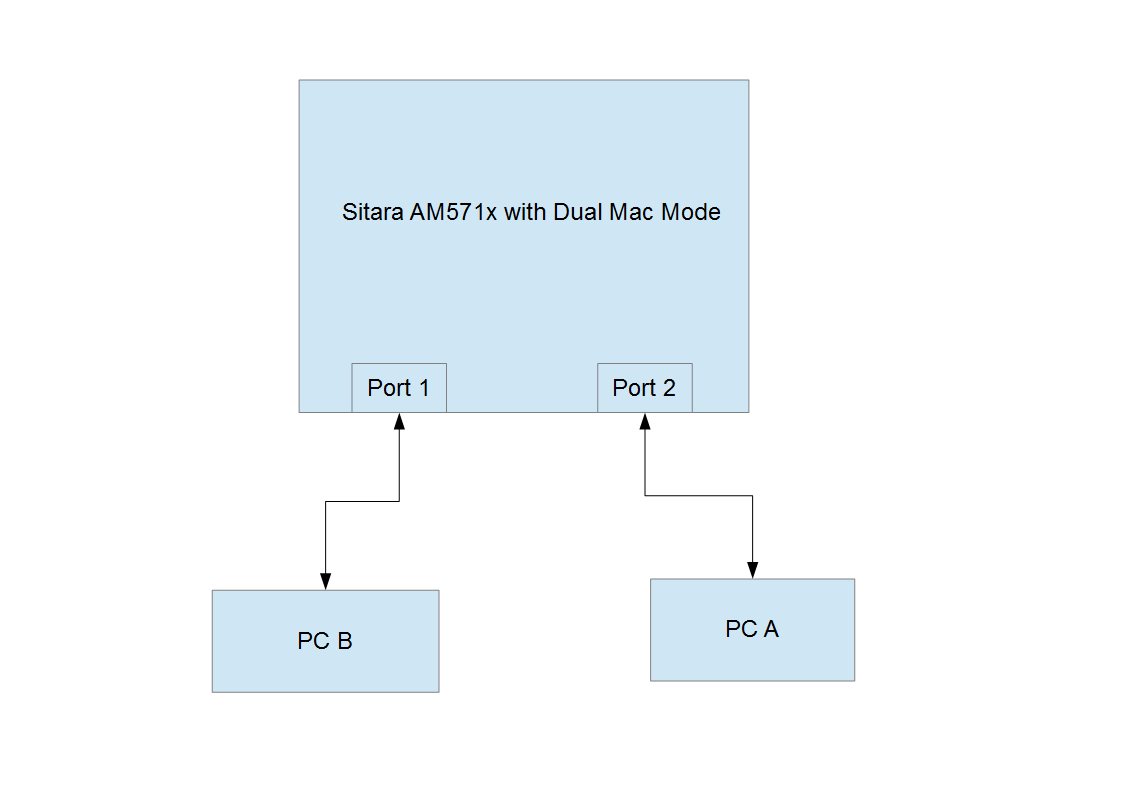Hello Everyone
In the company I work the network is configured in a way where if a switch is connected the port used gets blocked. Because of that we want to use the Sitara AM571x in Dual Mac Mode to have two separate networks connected to the processor. Currently, I have the following setup:
I try to ping different connections:
PC A to Sitara Port 2: Possible (As expected)
PC A to Sitara Port 1: Not Possible(As expected)
PC B to Sitara Port 1: Possible (As expected)
PC B to Sitara Port 2: Not Possible (As expected)
PC A to PC B: Possible (Not as expected)
So my question is now if there is a way to configure the Sitara so no packages can be exchanged between PC A and PC B? We are usingTI-RTOS. For my test I used IPV6 Addresses because on what ever reason the Sitaras Port 1, and 2 can not be in the same subnet and because we want to use dhcp on Port 1 we do no use IPV4 on port 2 because you do not know the settings beforehand.
Kind Regards
Marco


